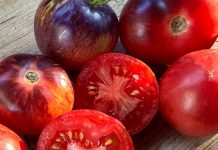Octopuses are pretty impressive; they can be as small as 2.5 cm and weigh less than a gram, or be as big as 600 pounds and over 30 feet.
They could not be further away from being like a human if they tried. They have three hearts, live totally under water and have eight limbs. Their blood is blue.
Octopuses are believed to be the most intelligent of all invertebrates, and there is something that scientists are now recognizing as similar to humans: they have a consciousness.
What is the definition of consciousness? The Webster dictionary states consciousness is “the quality or state of being aware especially of something within oneself,” and “the state or fact of being conscious of an external object, state or fact.”
The quote and definition that I believe addresses consciousness at its depth is by author Gary Douglas: “Consciousness is the ability to be present in your life in every moment without judgment of you or anyone else. It is the ability to receive everything, reject nothing and create everything you desire in life greater than what you currently have and more than what you can imagine.”
It seems that octopuses show a sign of curiosity, they evaluate things, they attend to things, they learn from their experiences. They have short and long term memory. Mostly they are present to their experiences and show they are intrigued by their environment.
So often, even with all our awareness, we are too distracted to be conscious of our environment of what is around us and the experiences we are having.
Have you ever gotten out of the shower and said “Did I wash my face?” We truly can’t remember if we did it or not. Or you get home from work and think “I really don’t remember driving home.”
That is our distracted minds not being conscious of what is. For many of us, we spend too much time thinking about tomorrow or over thinking what just happened or what is about to happen. We miss out on the moment.
There is only real beauty in the moment, any other is a distraction. It does not mean we cannot think about tomorrow or yesterday, however we do it with intention, as a memory, a learning, with forethought. Not as a distraction, an obsessive thought, or worry. This truly takes practice to do.
When we are sincerely in the moment, even if it means to think about tomorrow, it is a thoughtful process that is like putting all the pieces of a puzzle together. Each moment feels like a completion. We are not pushing against, or resisting. Our mind is not in different places, it is just there, resting in the moment of what is.
Our being finds peace in what is. Even when “what is” is not great, or it’s uncomfortable or even painful. When we lean into “what is,” it allows it to have power in our lives therefore relieving some of the stress.
It goes back to a saying by Eckhart Tolle: “What you resists, persists, what you push against, strengthens.”
The more we focus on the negative, the more we feel the negative, the more negative we feel. Being conscious means we acknowledge the negative but do not need to give it more meaning than that. We do not need to tell a story about it. It is the same as the good. Be conscious of the good without it being more than that. Live in the moment and experience it without judgment of things being good or bad, right or wrong, black or white.
I find it way too easy to get caught up in my story about whatever it is I am experiencing. The story is really only an affirmation of what I want to believe, what I want to distract myself with.
I am sure octopuses do not make up stories of why they believe things are happening to them in their lives. Perhaps that makes the octopus more conscious than we are.
Contact Dr. Shelly Zavala at DrZavala.com or Drzavala@mac.com.




